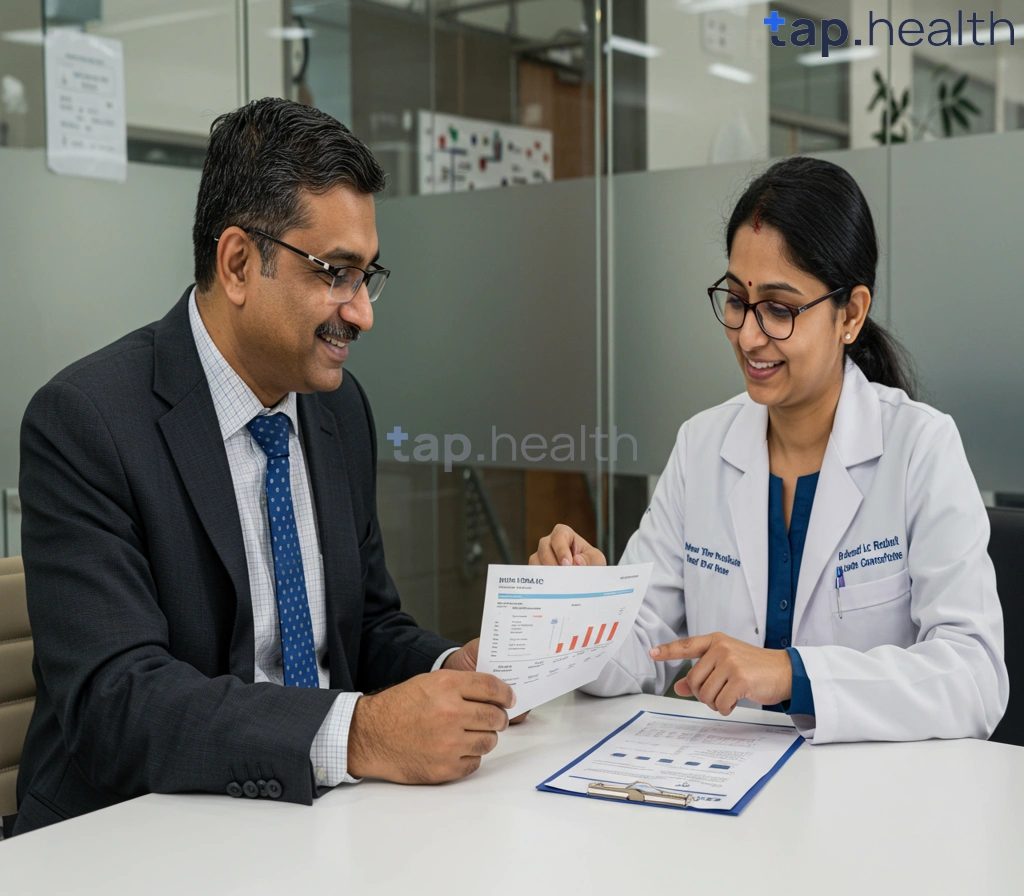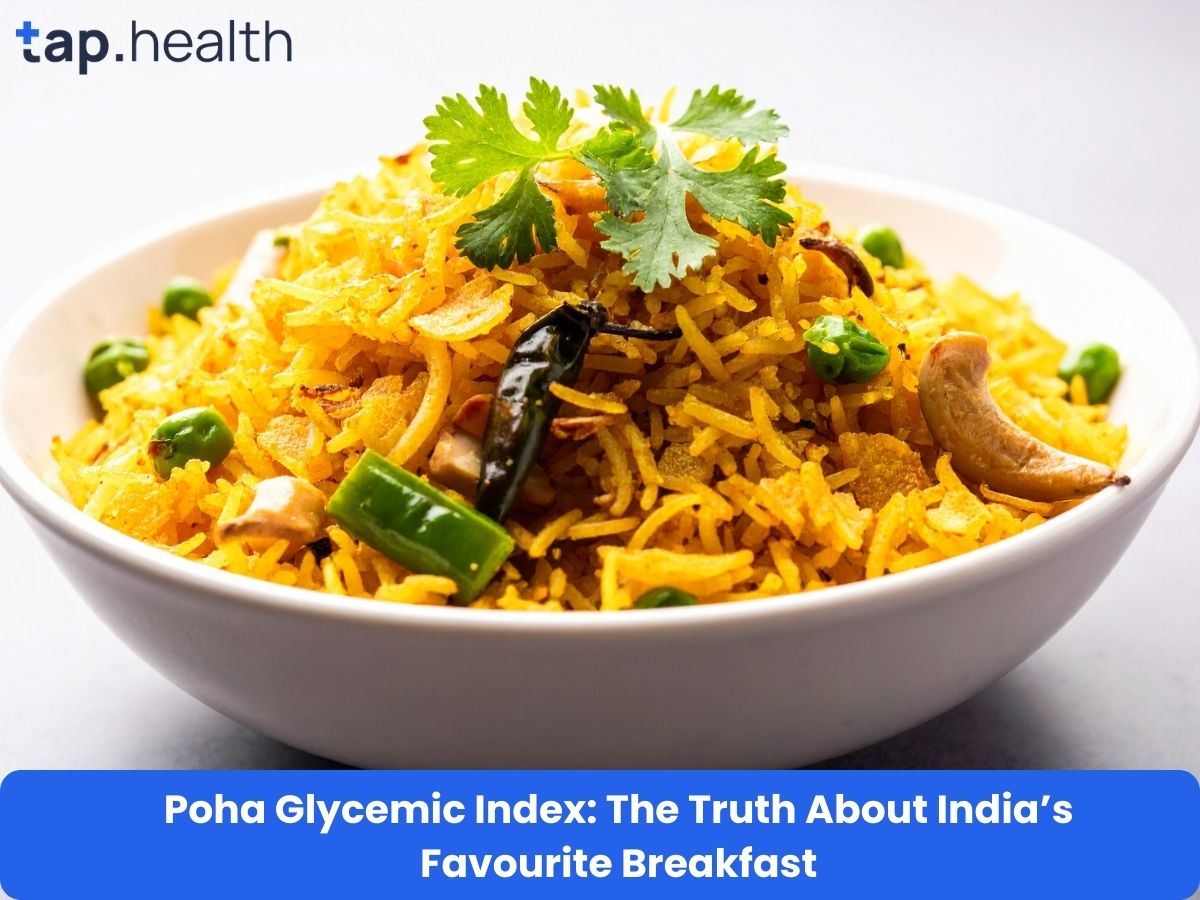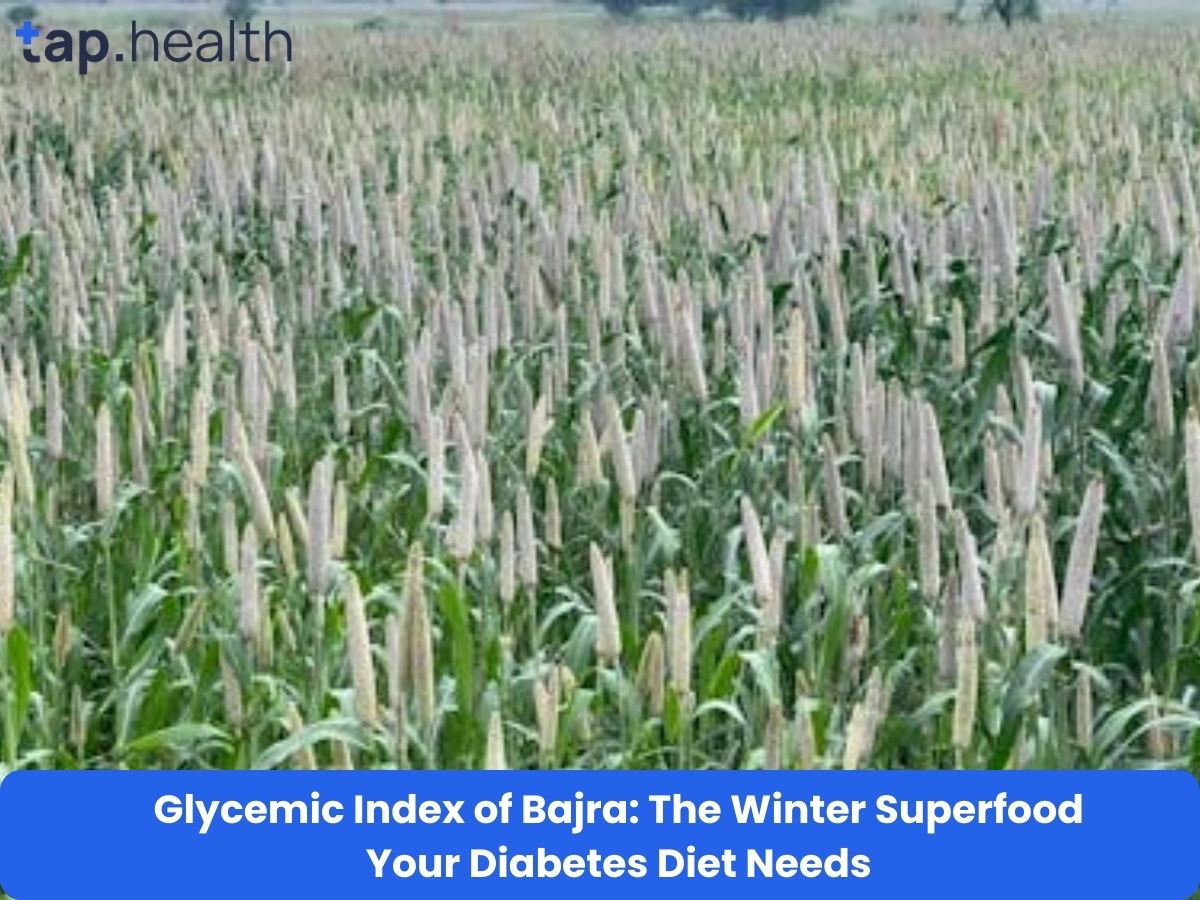Table of Contents
- Understanding Diabetes: Knowledge vs. Control
- HbA1c Levels: How Well Do You Manage Your Diabetes?
- Diabetes Management: Closing the Knowledge-Control Gap
- Perceived Diabetes Knowledge: Does it Reflect Your HbA1c?
- Improve Your Diabetes Control: A Guide to Better Management
- Frequently Asked Questions
- References
Living with diabetes requires more than just understanding the condition; it demands effective management. Do you feel completely in control of your diabetes, even with a solid grasp of the theory? This blog post delves into the fascinating relationship between Diabetes Knowledge vs. Control: A Study Comparing Perceived Understanding to HbA1c Levels. We’ll explore the findings of a recent study that investigated whether a high level of perceived diabetes knowledge directly translates to better HbA1c control. Get ready to discover if your understanding truly reflects your blood sugar management, and learn practical steps to bridge any gaps you might find.
Understanding Diabetes: Knowledge vs. Control
The Gap Between Knowing and Doing
Knowing about diabetes and actually managing it? That’s a huge gap for many. It’s like knowing you should exercise, but finding the time and motivation is a whole other story. This is especially true in places like India and other tropical countries where diabetes rates are sky-high. Think about it: the International Diabetes Federation reports that a massive 61% of people with diabetes are between 20 and 64 years old – prime working age! This significantly impacts economies. And it’s not just younger people; 39% are 65 and older, adding another layer of complexity to healthcare. (Further data). The rising obesity rates, as we discussed in our blog on Understanding the Link Between Diabetes and Obesity, only make things tougher.
Cultural and Environmental Factors
The challenge isn’t just individual willpower. Cultural habits and daily life play a massive role. Traditional diets, access to healthcare (or lack thereof), and socioeconomic factors all influence how well someone manages their diabetes. To truly help, we need to tackle these issues head-on. Culturally sensitive dietary advice and affordable medications are key steps. But these get even harder to manage as we age, a topic we explore in Managing Diabetes as You Age: Challenges and Solutions.
Taking Control: A Call to Action
So, what can you do? For people with diabetes in India and tropical countries, proactive steps are crucial. Connect with your doctor, join a support group – find your tribe! And remember, sustainable lifestyle changes are essential. This isn’t about quick fixes; it’s about making long-term choices that improve your quality of life. Effective diabetes management isn’t just about knowing; it’s about doing. Talk to your doctor to create a personalized plan. You’ve got this!
HbA1c Levels: How Well Do You Manage Your Diabetes?
Knowing you have diabetes is just the first step; managing it effectively is the real challenge. A recent study revealed a worrying trend: over 30% of people with diabetes in many parts of the world, particularly in regions like India and other tropical areas, have HbA1c levels above 9%. This highlights a significant gap between understanding the condition and truly controlling it. What does this mean for you? Simply put: it underscores the vital importance of regular monitoring and proactive management.
Understanding Your HbA1c
Your HbA1c level gives a snapshot of your average blood sugar over the past two to three months. Think of it as a report card for your blood sugar control. A high HbA1c, like those above 9%, signals poor control, dramatically increasing the risk of serious problems like heart disease, kidney disease, and nerve damage. These complications are particularly concerning in warmer climates, often worsened by lifestyle factors.
Taking Control: Practical Steps You Can Take
- Regular Monitoring: Using a home blood glucose monitor is crucial. Think of it as your personal blood sugar detective!
- Stick to Your Plan: Follow your doctor’s advice meticulously. This includes medications and dietary changes.
- Healthy Eating: Focus on a diet packed with fruits, vegetables, and whole grains. Small, consistent changes make a big difference.
- Stay Active: Regular exercise is key to better blood sugar control. Even a short walk each day helps.
- Integrate Traditional Practices (If Applicable): In regions like India, incorporating traditional practices, under your doctor’s guidance, can be beneficial.
- Cholesterol Control: Managing cholesterol is essential, as it often goes hand-in-hand with diabetes. Learn more here: How to manage cholesterol levels with diabetes
Seek Expert Guidance
Don’t let a high HbA1c discourage you. Talk to your doctor or a certified diabetes educator. They can help create a personalized plan. Early intervention and consistent effort can make a huge difference in your overall health and well-being. Mastering your HbA1c results is a powerful tool; this guide can help: How to use an HbA1c test to track and improve your diabetes Remember, proactive management is key to living a longer, healthier life with diabetes.
Diabetes Management: Closing the Knowledge-Control Gap
Understanding the Disconnect
It’s a sobering fact: globally, half of all people with diabetes are undiagnosed. The IDF Diabetes Atlas paints a stark picture, especially in India and other tropical regions. Many believe they’re managing their diabetes well, but their HbA1c levels often tell a different story. This disconnect highlights a crucial need to rethink diabetes education and care in these areas. It’s not just about knowing about diabetes; it’s about effectively managing it.
Bridging the Knowledge-Control Gap in India and Tropical Countries
Why this gap? Several factors play a role. In many parts of India and tropical countries, limited access to healthcare is a major hurdle. Socioeconomic disparities and deeply ingrained cultural beliefs can also hinder early diagnosis and consistent management. Then there’s the sheer complexity: dietary changes, medication adherence, and lifestyle adjustments can feel overwhelming. Simple, culturally relevant educational programs are key, focusing on practical, achievable steps. Comprehensive diabetes education (How Diabetes Education Enhances Health Outcomes) is absolutely essential. Imagine trying to navigate a complex system without a map – that’s the reality for many.
Empowering Individuals Through Effective Strategies
Community-based programs offer a powerful solution. These initiatives should utilize local languages, incorporate traditional knowledge, and prioritize practical strategies. Think of easily accessible blood glucose monitoring and affordable healthcare. Equally crucial is promoting healthy lifestyles with accessible exercise programs and nutrition guidance tailored to local diets. A personalized approach to diabetes control (Why a Personalized Plan is Key to Diabetes Control) can make all the difference. By empowering individuals with the knowledge and support they need, we can significantly improve diabetes management and health outcomes.
Perceived Diabetes Knowledge: Does it Reflect Your HbA1c?
Many people in India and other tropical countries feel confident in their diabetes management. But does this perceived knowledge actually translate to good blood sugar control? A recent study revealed a worrying gap: people believed they knew how to manage their diabetes, but their HbA1c levels – a key measure of long-term blood sugar control – told a different story.
Consistently high HbA1c levels (above 6.5% indicates diabetes, while 5.7% to 6.4% suggests prediabetes) dramatically increase the risk of serious complications like heart disease, kidney problems, and nerve damage. These risks are even higher in tropical regions due to various lifestyle and environmental factors. Understanding how diabetes affects blood flow (as explained in this helpful article) is crucial to grasping these complications.
Bridging the Knowledge Gap
The study showed that even those who felt well-informed often had poorly controlled HbA1c. It’s not enough to just know the facts; you need to put that knowledge into action. Daily habits like diet, medication adherence, and regular exercise are key.
Many in India and similar regions face challenges like limited access to quality healthcare, consistent medication supplies, and nutritious food – all impacting their ability to maintain healthy HbA1c levels. Plus, dispelling common myths is essential. For instance, this article clarifies the misconception about diabetes being contagious.
Taking Control of Your Diabetes
Managing diabetes effectively isn’t about knowing the theory; it’s about consistent action. Regular check-ups are vital to monitor your HbA1c and address any difficulties. Consider joining a diabetes support group; sharing experiences and encouragement can make a huge difference. Remember, a healthy lifestyle – tailored to your region – is crucial. A balanced diet and regular exercise are powerful tools in managing blood sugar and lowering your HbA1c.
Don’t let perceived knowledge give you a false sense of security. Take charge of your health today.
Improve Your Diabetes Control: A Guide to Better Management
Managing diabetes in hot, humid climates like India’s presents unique challenges. A recent study, “Diabetes Knowledge vs. Control: A Study Comparing Perceived Understanding to HbA1c Levels,” revealed a surprising disconnect: many people think they understand their diabetes, but their blood sugar control isn’t reflecting that knowledge. This highlights the need for proactive, personalized management.
Understanding Your HbA1c and Blood Pressure
Your HbA1c is your average blood sugar over the past few months – think of it as a report card for your blood sugar. Aiming for below 7% is generally a good goal, but your doctor will help you set a personalized target. Similarly, keeping your blood pressure in check is crucial. Ideally, it should be below 140/90 mmHg, or even lower (below 130/80 mmHg) if recommended by your healthcare provider. Regular checks of both are non-negotiable for effective management.
Practical Tips for Better Control in Hot Weather
Heat and humidity can really impact blood sugar. Staying hydrated is key – think of it like keeping your engine properly lubricated. Small, frequent meals are better than three large ones; this helps prevent those dreaded blood sugar spikes. Focus on fiber-rich foods like whole grains, fruits, and vegetables—and try to source them locally for optimal freshness. Even short walks can make a huge difference.
For a more in-depth guide with proven tips, check out our article: 10 Proven Tips to Effectively Manage Diabetes | Simple Guide. Remember: your doctor or a certified diabetes educator can offer tailored advice.
Taking Charge of Your Diabetes
Managing diabetes is a journey, not a destination. By understanding your HbA1c and blood pressure, making smart lifestyle choices suited to your climate, and working closely with your healthcare team, you can significantly improve your health and well-being. Creating a personalized plan, specific to your needs and the climate you live in, is key.
Explore more strategies here: 10 Proven Tips for Effective Diabetes Management. Schedule that doctor’s appointment today—it’s a vital step toward a healthier you.
Frequently Asked Questions on Diabetes Knowledge vs. Control
Q1. What is the main challenge highlighted regarding diabetes management?
Many people with diabetes, especially in tropical countries like India, understand the condition but struggle to effectively manage it, leading to high HbA1c levels and increased risks of complications.
Q2. How can I improve my diabetes management and lower my HbA1c levels?
Regularly monitor your blood sugar, meticulously follow your doctor’s advice (including medication and diet), eat a healthy diet rich in fruits, vegetables, and whole grains, exercise regularly, and consider incorporating traditional practices under your doctor’s guidance.
Q3. What factors contribute to the knowledge-control gap in diabetes management, particularly in India and tropical countries?
Limited access to healthcare, socioeconomic disparities, cultural beliefs, the complexity of managing diabetes (diet, medication, lifestyle changes), and a lack of simple, culturally relevant educational programs all play significant roles.
Q4. What is the significance of HbA1c levels, and what should I do if mine are high?
HbA1c reflects your average blood sugar over two to three months. High levels (above 9%) indicate poor control, increasing the risk of serious complications. If your HbA1c is high, consult your doctor to create a personalized management plan.
Q5. How can I effectively manage my diabetes in a hot climate?
Stay well-hydrated, eat small frequent meals to avoid blood sugar spikes, focus on fiber-rich foods, and incorporate regular exercise. A personalized plan tailored to your specific needs and climate is crucial.
References
- Level of diabetic patients’ knowledge of diabetes mellitus, its complications and management : https://archivepp.com/storage/models/article/97fOykIKJYrCcqI3MwOt8H3X3Gn1kxtIvsVAJnA2DaTBd9pgFHFIytgNzzNB/level-of-diabetic-patients-knowledge-of-diabetes-mellitus-its-complications-and-management.pdf
- Learning demands of diabetes self-management: a qualitative study with people who use insulin: https://www.scielo.br/j/rlae/a/x3YzdP55MFxtHWP7qjMVQcP/?format=pdf&lang=en



